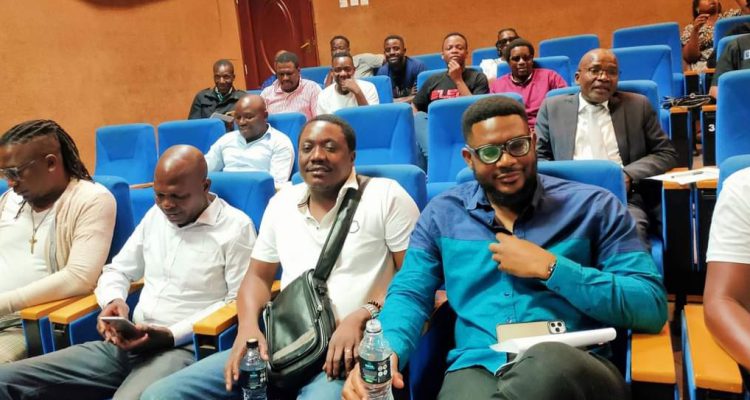
On Thursday, Malawian artists left with smiles on their faces as the Corporate Society of Malawi (COSOMA) disbursed royalties to various creative artists.
Many artists received their royalties: Che Mandota received 10 million, Kendall 17 million, Saint and Driemo 9 million, Namadingo and Eli Njuchi 8 million, Kell Kay, Lucius Banda, and Gibo Pearson 7 million, Zeze 6 million, Atoth Manje, Phyzix, Dan Lu, and Wikise 5 million, while Gwamba, Skeffa Chimoto, Onesimus, Jay Jay Cee, Piksy, Praise Umali, and Macelba received 4 million.
The meeting, held at the Crossroads Hotel in Lilongwe, truly marked a day when artists were on cloud nine, celebrating the fruits of their labour like a bountiful harvest. Despite the program’s brevity, some artists acted inappropriately by exclaiming, “Swift remarks, please! The banks will close shortly!”
As the atmosphere filled with anticipation, a significant number of notable musicians attended the gathering, including Jetu, Wikise, Mlaka Maliro, Sam Smack, Anjiru Fumulani, Hilco, Nepman, and Billy Kaunda, among others.
Although the COSOMA program indicated that the meeting was supposed to commence at 8:00 AM, it was delayed by Malawian time, as is often the case.
By the time many creatives began to fill the hall around 10:00 AM, the female Director of Ceremonies, Catherine Michongwe, took the stage and encouraged artists to grace the audience, as Minister of Culture Richard Chimwendo Banda, the guest of honour, was expected.
In a spirited moment, gospel artist Evance Meleka offered the song “Thanthwe Lon’gambika,” which he sang along with all the attendees. The captivating backing vocals came from Shammah and other artists seated around him, creating a harmony that filled the room like a gentle breeze.
Transitioning to the main agenda, COSOMA Chairperson Chimwemwe Mhango, with full vitality, acknowledged that COSOMA’s efforts are exceptional. He noted that many countries in Africa, such as Zimbabwe, Kenya, and South Africa, do not conduct a blank media levy.
“With the Secretariat’s efforts, all registered members should render their support. If anyone has issues, the door is open to discuss them with the COSOMA officials rather than resorting to unnecessary alternatives,” Mhango stated.
After a brief delay, as Chimwendo Banda, the Minister of Local Government, Unity, and Culture, who was the main guest, arrived late in the hall around 10:30 AM, he quickly apologized before the meeting commenced.
Demonstrating his charisma, he began addressing the audience with his captivating oratory, drawing on his political rhetoric like a skilled storyteller.
“I am overwhelmed and thankful for what COSOMA is doing. Historically, such a billion-kwacha royalty disbursement to various creative minds has never happened; the figure is enormous,” he expressed in gratitude to COSOMA.
Reflecting on the power of music, he cited one particular song, “Achalume,” performed by the late Walycris. “This song emphasizes daily life. It says, ‘I don’t have a degree, but I am not economically disadvantaged,’ highlighting the power of believing in yourself and hard work.”
In a memorable moment, Chimwendo Banda, with his husky voice, tried to sing a few lines from the song, mesmerizing many in the audience like a magician captivating his spectators.
Expanding on the theme, he remarked that music has a unique force, mentioning that the late Atoth Manje and Walycris created Yao songs, which many people may not fully understand lyrically but can still enjoy.
Delving deeper into personal connections, when Banda noticed the wife of the late Atoth was in attendance, he initially joked about doubling his royalties before stating he would just offer her MK 1,000,000, as Atoth Manje was one of his favourite artists.
Moreover, the Minister appreciated the legacy and indelible mark left by the late Lucius Banda, noting that he still supports his family through his son Johnny by providing live music performances with his Zembani Band. In closing, Chimwendo concluded with a Yao remark, which meant, “I can’t fear; I am a man.”
As the saying goes, “A bird in hand is worth two in the bush.” These royalties reflect the hard work and dedication of the artists, ensuring that their efforts are duly recognized and rewarded, like seeds sown in fertile soil, destined to bear fruit.














